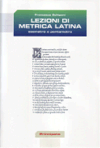
Questa settimana (e fino alla fine del percorso annuale) New Fluency propone un'attività opzionale in aggiunta ai trenta minuti quotidiani: la lettura ad alta voce di un testo.
Durata dell'esercizio: dieci minuti al giorno, ogni giorno fino alla fine del percorso New Fluency
Modalità: scegliere un testo in inglese e leggere ad alta voce.
Attenzione: usare molto volume (importantissimo!); concentrarsi, mentre si legge, sul contenuto di ciò che si legge; scegliere un testo facile e interessante (Wikipedia, riviste inglesi on-line, audiolibri su YouTube con relativo testo, libri cartacei ecc.).
Motivazione dell'esercizio: come già detto, si tratta di un'attività non obbligatoria rivolta a quanti desiderano impegnarsi maggiormente per avere risultati migliori. I vantaggi sono molti: leggere ad alta voce coordina il respiro con il parlato, abitua la mente a scandire il testo in blocchi logici, tiene in esercizio tutto l'apparato fonatorio (lingua, denti, corde vocali ecc. prendono confidenza con i nuovi suoni), consente di caricare in anteprima, mentre si sta parlando, le informazioni che verranno date in seguito ecc. (cfr. a tale proposito Francesco Schipani, Manuale di lettura espressiva, La Rondine Edizioni 2017). Insomma, la lettura ad alta voce è il segreto del Public Speaking e migliora di molto anche la fluency (la scorrevolezza nel parlare). Possiamo considerarla una fase di passaggio dal silent period alle prime produzioni orali in inglese.
You have five senses: hearing, sight, smell, taste, and touch. You need a
wide vocabulary to be able to accurately describe what you feel through
your senses. For example, not all smells are the same. Do you know the
difference between "fresh", "fragrant", "pungent", and "musty"? Watch on
because in this lesson, I will teach you 50 (!) words to describe not
only odours, but what you experience through all five of your senses.
There will be ten words for each sense, all of which will help your
conversation become more interesting to your listener, as they will be
able to imagine your words more clearly and more vividly.
In this lesson, I will teach you twelve ways that we use body parts as
verbs in English. Does that sound strange? Well, maybe it is, but these
are verbs you will hear pretty often, so you should learn them. We will
look at expressions like "necking", "shoulder a burden", "mouth off",
"to eyeball someone", "skinned alive", and more. These expressions are
commonly used by native English speakers and are useful in everyday
life.





Nessun commento:
Posta un commento